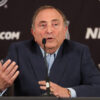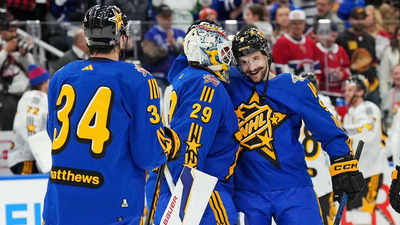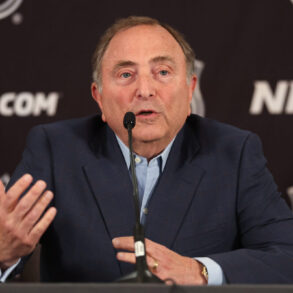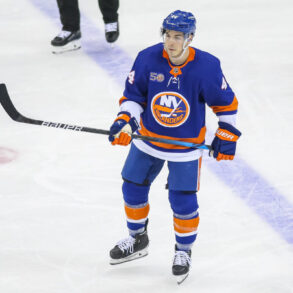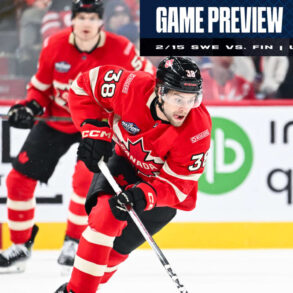For years, major sports leagues across North America have struggled to keep their All-Star Games relevant. With dwindling interest from both fans and players, these once-celebrated events have often been reduced to lackluster exhibitions, plagued by half-hearted performances and injury concerns. The NHL, however, has taken a bold step in 2025, scrapping its traditional All-Star Game in favor of a groundbreaking international tournament—the 4 Nations Face-Off. This move could redefine how leagues approach midseason breaks, offering a fresh, competitive alternative that’s already generating buzz.
NHL Replaces All-Star Game With International Hockey Event—A Game-Changer for Fans and Players
The 4 Nations Face-Off isn’t just another All-Star event with new branding—it’s a complete transformation. The tournament features four of the world’s hockey powerhouses: the United States, Canada, Finland, and Sweden. These teams will compete in a round-robin format, with the top two nations battling for the championship. Unlike previous All-Star exhibitions that lacked intensity, this tournament has serious implications. As Team USA’s alternate captain Charlie McAvoy put it, the 4 Nations Face-Off is “not even comparable” to traditional All-Star Games, emphasizing that “those are just skills competitions. This is the real deal.”
Fans have long been critical of the NHL’s All-Star weekend, which, despite a history of entertainment, has failed to maintain excitement. The skills competitions often feel half-hearted, and the game itself lacks the competitive spirit that makes hockey thrilling. In contrast, the 4 Nations Face-Off injects a new level of significance into the midseason break, ensuring top players have something meaningful to play for beyond an exhibition-style showcase.
A Preview of Olympic-Quality Hockey
The timing of the tournament is no coincidence. With the NHL set to return to the Winter Olympics in 2026, the 4 Nations Face-Off serves as a preview of what’s to come. This competition allows players to build chemistry and national teams to gauge their strengths ahead of the Milano Cortina Olympics. According to The Athletic’s player poll, 81% of respondents expressed genuine interest in the 4 Nations Face-Off—an overwhelming shift from the lukewarm reception that recent All-Star weekends have received.
Other professional leagues have also experimented with injecting national pride into their All-Star events, with varying degrees of success. The WNBA, for instance, has pitted Team USA against the league’s top players, while the NBA has considered similar changes. However, NBA Commissioner Adam Silver admitted that the All-Star Game might “never again be a truly competitive game.” The NHL’s 4 Nations Face-Off, on the other hand, is designed from the ground up to ensure competition, rather than just a display of flashy skills.
The Challenges and the Bigger Picture
While the tournament brings fresh excitement to the midseason, it’s not without its drawbacks. Russia’s ongoing international sporting ban means that elite players like Kirill Kaprizov and Andrei Vasilevskiy won’t participate. Similarly, Czechia’s exclusion leaves out stars like David Pastrnak and Martin Nečas. Germany’s Leon Draisaitl, one of the NHL’s premier forwards, will also be absent due to a lack of national depth.
Despite these omissions, the tournament represents a significant step toward a long-term goal: establishing a world championship tournament that consistently features the best players. The NHL’s absence from the Olympics in previous years has been a major void for international hockey. Meanwhile, other global competitions, such as the IIHF Ice Hockey World Championships, have often missed key players due to scheduling conflicts with the Stanley Cup Playoffs. The last true best-on-best event, the World Cup of Hockey, hasn’t been held since 2016. The 4 Nations Face-Off is the NHL’s first step in rectifying this gap.
The Future of Midseason Hockey
While the traditional NHL All-Star Game is set to return in 2026, the success of the 4 Nations Face-Off could shape the league’s approach to midseason entertainment in the long run. Fans and analysts alike will be closely watching how this tournament impacts ratings and engagement. In recent years, the NHL’s All-Star broadcasts haven’t drawn viewership numbers comparable to other leagues, but an intense, meaningful competition could change that narrative.
Also Read: Auston Matthews Net Worth in 2025, Current Salary, Personal Life Details and More
As teams battle for national pride and a championship, the 4 Nations Face-Off has the potential to redefine what midseason hockey should look like. By replacing an outdated, uninspired exhibition with something players actually care about, the NHL may have just set a precedent for other leagues to follow.
This post was originally published on this site be sure to check out more of their content.


